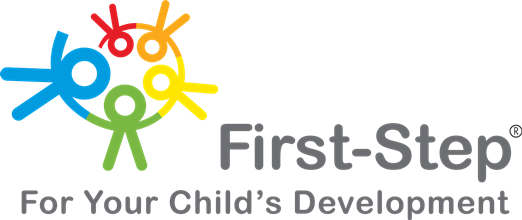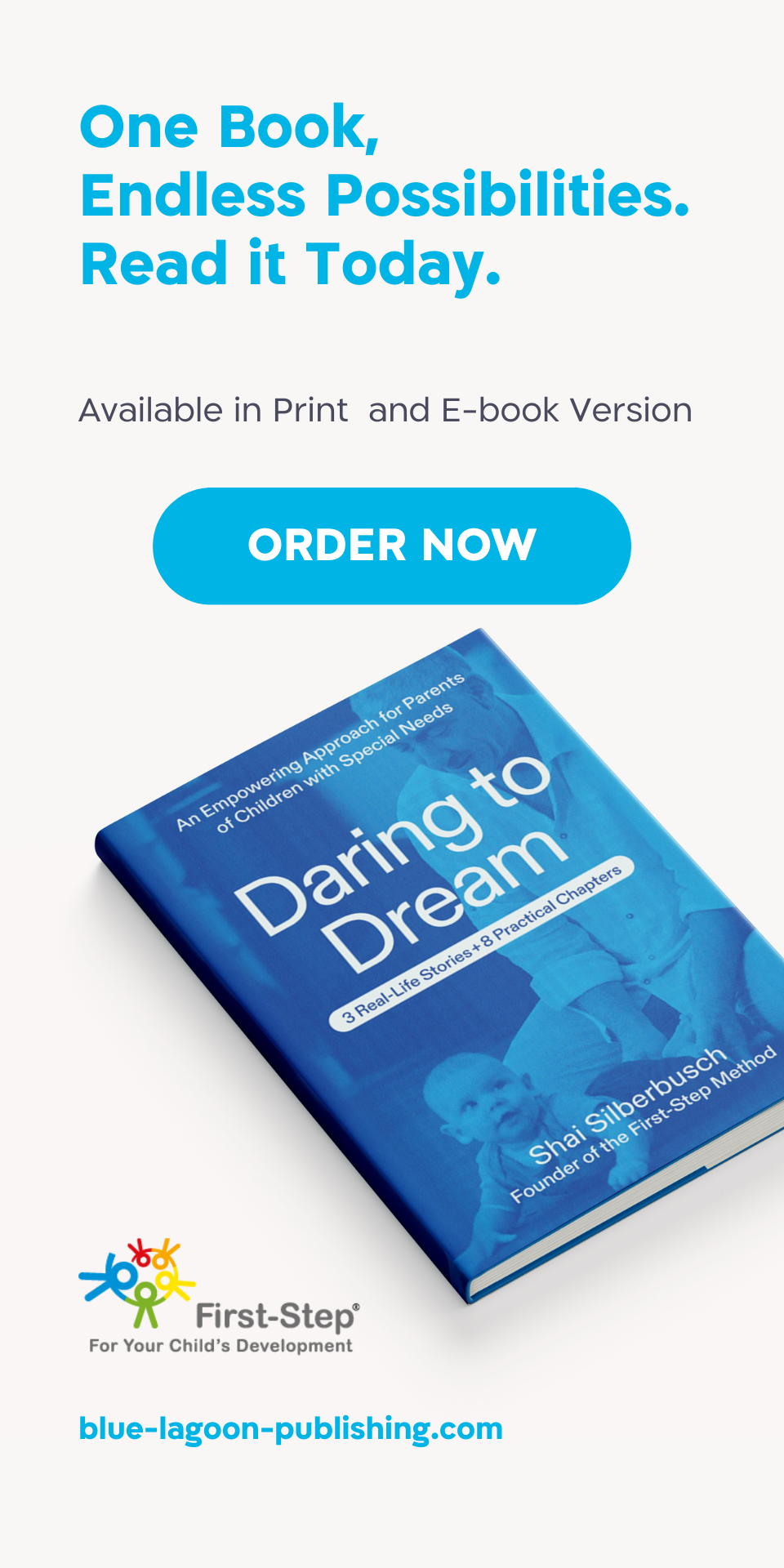
9-12 Months
First Step Workshops – From 9 To 12 months
Is everything really fine?
Your nine-month-old baby should already perform some important developmental tasks, such as sitting up, crawling – or getting ready to crawl, grasping an object, and so on.
The workshop aimed at this age-group checks whether all developmental goals have been properly completed and acquired – and also offers guidelines to complete this important stage of standing, and towards walking.
Among the important topics in the workshop: The mission – standing
In evolutionary terms, the moment when our ancestors stood up and started walking on two legs is considered the greatest leap forward in the transition from the animal world to the human one. It’s no accident that the task of standing straight remains a highly significant developmental stage for babies.
At the workshop, development support checks whether all components required for standing properly have been acquired – balance, correct movement of the spine, coordination between the upper and lower parts of the body, and muscle power coordination, among others. And even when the infant is standing, we check important aspects such as the form way s/he stands – how stable baby is, whether his stride is too wide, does s/he know how to transition from standing to sitting, and back, is s/he standing firmly, or almost falling?
The exercises at the workshop show parents what is correct, stable standing, that helps kids preserve their backbones, creates proper posture that will rule out spine problems as adults.
Transitions
Another important subject is the child’s ability to transition smoothly from one situation to the next. At this development stage, the children can be in a whole range of situations – crawling, sitting, standing. When the transition is smooth, children have better options for being independent and creative in movement.
To understand the importance, let’s compare the body to a vehicle, where the driver is the central nervous system…if the nerve system (the brain) wants something, for instance, to take an object when the child is standing, but the body can’t perform the task, a difficulty is created – a disparity between drive and performance – liable to affect the child in the years ahead.
When the transition between situations isn’t smooth, it reflects a development flaw that has not yet been correctly treated.
It’s your opportunity as parents to provide the right response now, when it’s not too late.
Are your toddler’s movements completely independent?
Answering questions on development and behavior
There are several dilemmas for parents at this stage – how much freedom of action should we give our toddler? What really is risky? Should we give him a baby walker – he’s longing to move faster… Which shoes should we buy her?
At the workshop, we devote considerable time to these questions, and furnish parents with reliable, professional information.
One worrying issue for parents at this stage is the infant’s anxiety about strangers, and fear of abandonment. As we explained in the previous stages – there is a profound connection between movement capacities and emotional-behavioral experience. The more confident toddlers are that they can move unimpeded, with the parent’s full trust – the less they’ll “need” dependent and anxious behavior.
The workshop helps parents be a genuine anchor for the children, allowing them great freedom of movement. We check for abandonment fear, and teach parents how to respond positively to the situation.
Starting to speak
At this age, parents long to teach their child to talk. It’s a natural desire, because the baby responds and is curious, but it can bring problems. Language development occurs in a gradual process with many components.
Trial and error is one of the most important components. When baby “makes a mistake” but corrects himself unaided, just by listening to those around him – language acquisition is much deeper.
The First Step workshop outlines correct ways of helping babies learn to speak, for example by creating a link between an action and speech, a connection that encourages more effective learning, or by using additional senses to support language acquisition, using changing intonation that challenges the baby significantly.
There’s no need to teach a baby to talk…
Sleep habits: why has baby stopped sleeping?
At this age, a child goes to bed after hours of non-stop activity and movement. Several parents attending our workshops report that “Suddenly s/he stopped sleeping” and also note that night-time has become full of activity.
In this case too, we suggest at the workshop to consider what the world looks like from baby’s perspective, and then understand how we can help. At this age a baby needs lots of contact with the parent at night, because the whole day s/he was active and in movement. Babies world of concepts is enlarging– they “understand” more and so they have more fears. So paradoxically, at an age when baby needs more and more daytime independence, at night they need the exact opposite – security, touch, soothing.
We have to realize that fear of sleep at this age derives from deep organic sources – it’s tied to the fear of falling…and think about falling in love and falling asleep – in both cases we have to feel safe for it to happen!
Parents learn how to create a soothing, tension-free atmosphere towards bedtime, how to help baby fall asleep without our intervention, and what to do about frequent crying and waking up.
Eating – an aspect of development
At the workshop, we provide tools for coping with mealtime situations – food throwing, mess, finger-foods etc. We relate to eating as a developmental aspect, and explain how to ensure that the most important daily activity in life – eating – is performed the right way, avoiding future eating problems.

